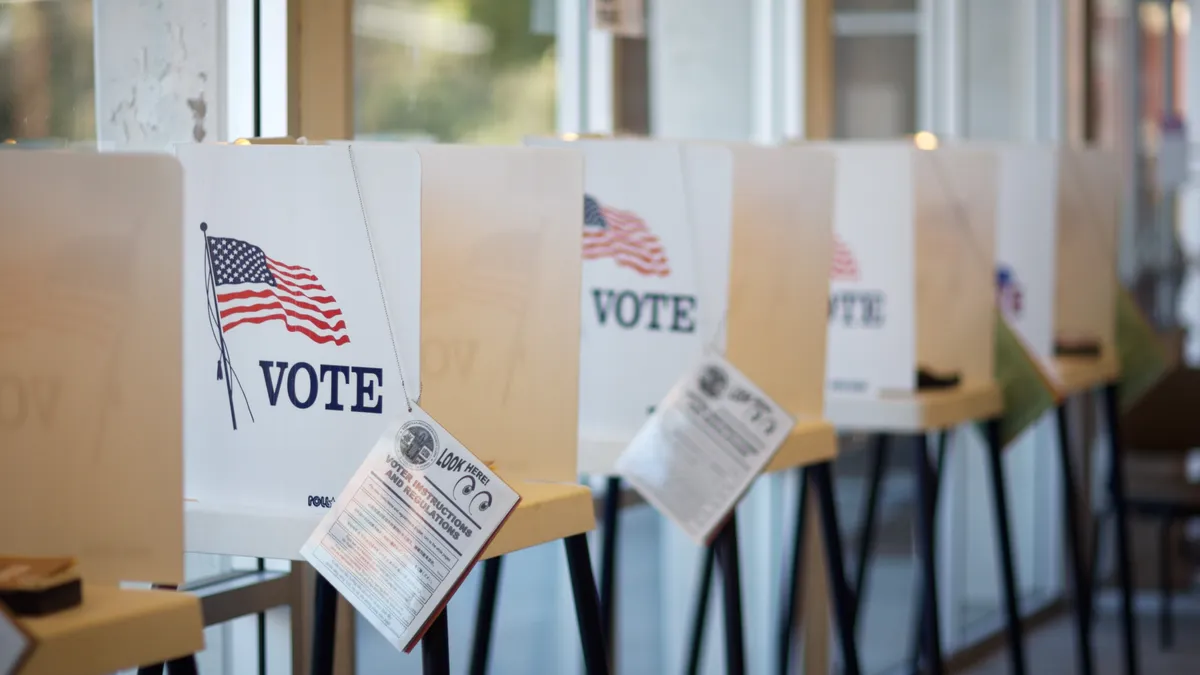Dive Brief:
- U.S. businesses joined forces to launch "Time to Vote," a nonpartisan initiative to increase voter participation by making the process easier, according to an announcement from the initiative dated Feb. 19. The coalition started ahead of the 2018 midterms and represents "more than 2 million workers," the announcement said, though it plans to "more than double in size."
- CEOs and business owners who join Time to Vote commit to offering benefits like paid time off on Election Day, eliminating meetings on Election Day or providing workers with resources that support early voting or the use of mail-in ballots. So far, 383 companies have joined Time to Vote, including Best Buy, Walmart, Hewlett Packard Enterprise, Kaiser Permanente, Target and J.P. Morgan Chase.
- "When the business community comes together to take a stand on issues that affect all Americans, it sends a powerful message," Michael Waldman, president of the Brennan Center for Justice, said in a media release. "Ultimately, a culture shift will meaningfully boost voter participation, and business leaders can help drive that shift." The center is a nonpartisan organization for voting rights and elections.
Dive Insight:
More companies have been explicit about giving employees time to exercise their voting rights. ElectionDay.org, a non-partisan project of Vote.org, joined a group of more than 140 employers that agreed to allow their workers time off to participate in the 2018 midterm elections. In an statement emailed to HR Dive in 2018, ElectionDay.org said its goal was to help employers interested in seeing their workers exercise their civic responsibilities.
An O.C. Tanner study released before the 2018 midterm elections found a connection between allowing workers time off to vote and their wellbeing and engagement in the workplace. In fact, 62% of the 1,000 employees polled said that their employer allowed them time off to vote. However, most employers specified a certain number of hours for voting, and more salaried than hourly workers received paid time off to vote.
This year, employers may find themselves pressed to keep the peace as contentious debate rises. More than a third of employees surveyed by Gartner said the topic of the 2020 election has led them to avoid co-workers because of their political views. Having broadly supportive voting policies — as well as policies on appropriate political expression — may help employers keep the peace.













